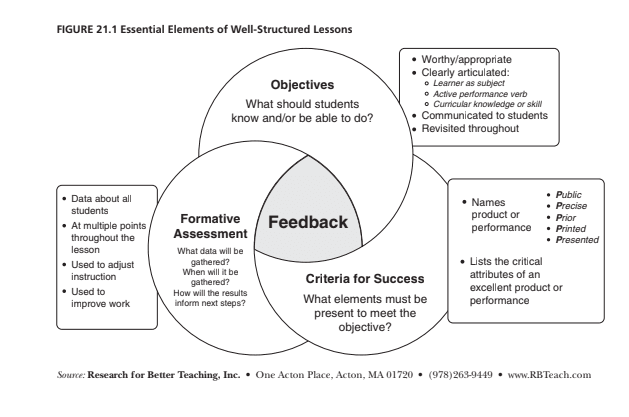Differentiation is about ensuring that all students have access to learning experiences that are tailored to their needs, interests, and readiness levels. |
Essential Elements of Well-Structured Lessons
We have treated each element and its skill set separately in other chapters so that we could go into detail here about how they work together. The point we want to make here is that these four elements need one another for a lesson to be seen as complete—to be excellent. And if all four are present in some way, each one needs to be executed well, not superficially or partially.

Differentiation is a pathway to equity: making learning experiences as accessible and engaging as possible for all students. |
Differentiation doesn’t mean individualizing instruction for every student all the time; it means providing a variety of learning options that help all students reach the same high expectations. |
When we differentiate, we are making adjustments to our teaching that ensure students can succeed in ways that match their strengths. |